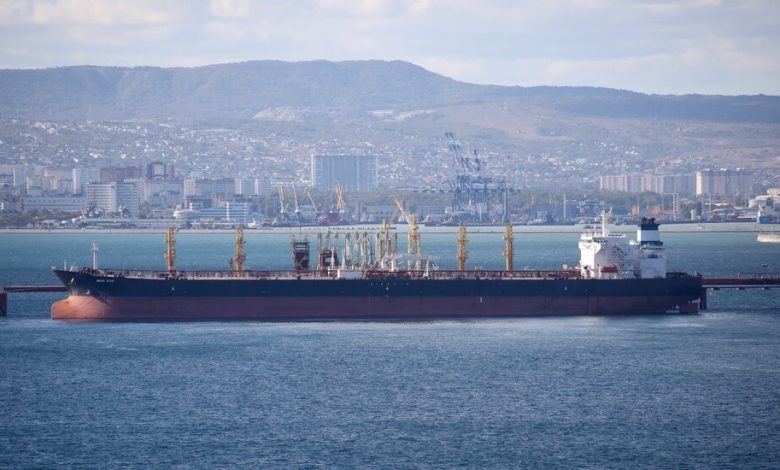G7 Tightens Enforcement of Oil Price Cap Amid Widespread Russian Evasion

The United States and its Western allies said on Wednesday they would tighten loopholes that have allowed Russia to evade a cap on its oil price, aiming to bolster a policy that was intended to curb energy revenues the Kremlin has used to fund the Ukraine war.
The Group of 7 nations and Australia, known as the “price cap coalition,” agreed last year to a United States-led plan to limit what Russia can charge for its oil exports to $60 a barrel. The untested policy initially appeared successful at keeping Russian oil flowing while increasing its export costs and curtailing its energy revenues.
But in the ensuing months, Moscow circumvented the cap by developing a “shadow fleet” of tankers and finding alternative options for insurance and financing, allowing it to sell oil at higher prices.
The price cap works by prohibiting Russia from accessing Western maritime insurance and financial services that are key to its oil exports unless its crude is sold below $60 per barrel. The policy relies on those insurers and financial service providers to verify the price of the oil being sold. But the verification process has not been effective and Russia has been able to routinely sell oil above that cap.
The actions announced by the G7 on Wednesday will require oil shippers using Western maritime insurers and other firms that finance Russian oil exports to provide more frequent and rigorous documentation to those service providers about the contents and prices of oil shipments. The coalition will also require other participants in the energy trade supply chain to be ready to provide more information about ancillary costs, such as shipping fees, that traders have been inflating to disguise higher prices that are being paid for Russian oil.
“These changes will support the implementation of the oil price cap and disrupt circumvention by reducing opportunities for bad actors to use opaque shipping costs to disguise oil purchased above the cap,” the G7 price cap coalition said in a statement on Wednesday. The group said the new requirements would “further complicate efforts by Russian exporters to circumvent the price cap while deceiving coalition service providers.”
The coalition said that the price cap has been successful this year because global markets have remained well supplied with oil and energy prices have been stable. It also estimated that Russian tax revenue from oil and petroleum product exports is down 32 percent from a year ago.
However, energy industry analysts have been less impressed with the cap, which essentially watered down Western embargoes on Russian oil in an effort to keep global oil prices from spiking. Experts at the Center for Strategic and International Studies argued in an October report that the cap appeared to work initially because the $60 threshold was set above market prices, but that when global oil prices rose this year, Russian oil exporters and traders were easily able to circumvent the cap.
“Oil prices have risen since July, exposing fatal flaws in the price caps on Russian oil exports,” they wrote, noting, “Since mid-July, Urals crude from Russia has consistently traded above the price cap of $60 per barrel.”
The European Union and the United States have been taking steps this fall to crack down on evasion of the price cap.
The E.U.’s latest sanctions package includes measures to curtail the sale of old shipping vessels that are making their way to Russia’s shadow fleet of tankers.
The Treasury Department on Wednesday imposed new sanctions against a Russian-owned ship manager that is based in the United Arab Emirates that has been transporting Russian crude priced above $60. It also leveled sanctions on three obscure traders of Russian oil that are based in the U.A.E. and Hong Kong and have been violating the rules.
Wally Adeyemo, the deputy Treasury secretary, said that the sanctions “demonstrate our commitment to upholding the principles of the price cap policy, which advance the goals of supporting stable energy markets while reducing Russian revenues to fund its war against Ukraine.”




